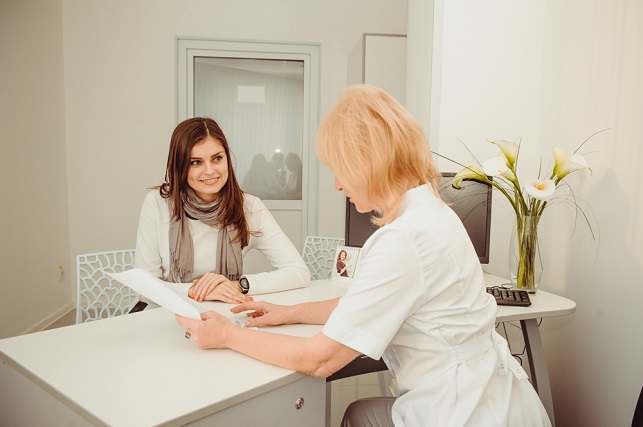Facing multiple failed IVF cycles can be emotionally and physically exhausting. However, with the right approach and support, many patients go on to achieve successful outcomes. Here’s what you should understand if you’re navigating IVF after repeated attempts.
Understanding Legal and Eligibility Criteria
In some countries, IVF is regulated by specific laws. For example, treatment may only be permitted for women under 50 and require the presence of a male partner who consents to treatment. Other legal considerations may include restrictions on gender selection, mandatory donor anonymity, or limitations based on body weight. Surrogacy may also be allowed under strict conditions, often requiring proof of medical necessity and the use of one’s own reproductive cells.
Exploring Your Treatment Options
Treatment options typically follow a stepped approach:
- IUI (Intrauterine Insemination)
- IVF with own eggs and sperm
- Sperm or egg donation
- Embryo donation
- Surrogacy in specific cases
In more complex cases, combinations of these approaches may be used, including blending donor and own cells or applying specific lab techniques to improve results.
Add-On Treatments to Consider
Several procedures can improve outcomes, particularly after failed cycles:
- Endometrial scratching: A minor injury to the uterine lining that may improve implantation.
- ERA test: Helps identify the ideal window for embryo transfer.
- PGT-A: A genetic test for embryo aneuploidies, generally recommended for women over 40 or those with multiple failed cycles.
- Intralipids: May help regulate immune responses that interfere with implantation.
- Sperm pre-selection methods: Such as IMSI, PICSI, MACS, or Fertile Chip, depending on sperm quality.
- Embryoscope monitoring: Offers 24/7 embryo development analysis without disturbing the environment.
- Assisted hatching & EmbryoGlue: Techniques to support embryo implantation, especially for frozen transfers.
The Emotional Factor: Managing Stress
Emotional well-being significantly impacts IVF success. Stress management strategies—such as meditation, being in nature, spending time with pets, or massage—can support the process. Acupuncture before and after transfer is another commonly used approach that many patients find helpful.
When to Reconsider the Protocol or Treatment Path
If the same IVF protocol has failed multiple times, a change may be necessary. While minor adjustments aren’t always made after the first or second attempt, continuing without changes after three unsuccessful cycles may indicate a need for reevaluation—whether it’s modifying medications or running further diagnostic tests.
Case 1: Persistence After Repeated Transfers
A couple in their early 40s began IVF using the woman’s own eggs. Their first fresh transfer and subsequent frozen embryo transfer both resulted in negative outcomes. A second stimulation produced many embryos, which were frozen for later use. Despite multiple frozen transfers—with changes in medication like switching from aspirin to Clexane—results remained negative. Finally, after the seventh attempt and adding an immune-modulating medication, the treatment succeeded, and they welcomed their baby.
Case 2: Changing Strategy Without Genetic Testing
A couple in their mid-30s had undergone four unsuccessful IVF cycles before seeking further treatment. Although they initially considered egg donation, they were advised to try again with sperm pre-selection and immune therapy. They declined preimplantation genetic testing but proceeded with the recommended immune treatment. Despite embryos not reaching the blastocyst stage, the transfer succeeded, leading to a healthy pregnancy and birth.
Case 3: Egg Donation and Emotional Wellbeing
A couple in their mid-30s had never achieved pregnancy after multiple IUIs and IVF cycles. Facing poor menstrual patterns and emotional stress, they opted for egg donation. Two high-quality blastocysts were transferred in the first attempt, but it failed. Stress was identified as a key factor. For the second attempt, the patient focused on relaxation techniques and had acupuncture on transfer day. A single embryo was transferred, and the thicker endometrial lining, along with improved emotional wellbeing, contributed to a successful pregnancy and the birth of a daughter.
Case 4: Natural Conception After Extensive IVF History
A woman in her mid-30s with irregular cycles and low ovarian reserve had already completed six IVF cycles and had one child from a prior successful treatment. A fresh IVF cycle at the clinic yielded just one embryo, which failed to implant. Despite additional testing, no new issues were found. Eventually, the couple decided to try egg donation, but before beginning, they conceived naturally. This unexpected outcome led to the birth of their second child—highlighting how fertility journeys can be unpredictable and filled with surprising turns.
How do I know if I need egg donation?
Age and test results like AMH levels provide guidance, but quality matters more than quantity. Decisions should be based on personal history and expert evaluation.
Should I take time off after embryo transfer?
While rest is encouraged, returning to normal life within a week is common—unless your job involves heavy lifting.
Can stress affect IVF outcomes?
Yes. Managing stress is critical throughout the process. A positive mindset and calming routines can make a difference.
Is egg donation only for older patients?
Not always. Some patients under 40 (even under 30) may require donation due to early menopause or poor IVF outcomes.
Conclusion
IVF after multiple attempts can still lead to success with the right combination of medical interventions, emotional support, and personalized care. Whether through egg donation, optimizing transfer timing, or adjusting protocols, each step brings patients closer to their goal. Most importantly, persistence, flexibility, and support are essential ingredients in this journey.
Table of Contents
- 1 Understanding Legal and Eligibility Criteria
- 2 Exploring Your Treatment Options
- 3 Add-On Treatments to Consider
- 4 The Emotional Factor: Managing Stress
- 5 When to Reconsider the Protocol or Treatment Path
- 6 How do I know if I need egg donation?
- 7 Should I take time off after embryo transfer?
- 8 Can stress affect IVF outcomes?
- 9 Is egg donation only for older patients?
- 10 Conclusion




